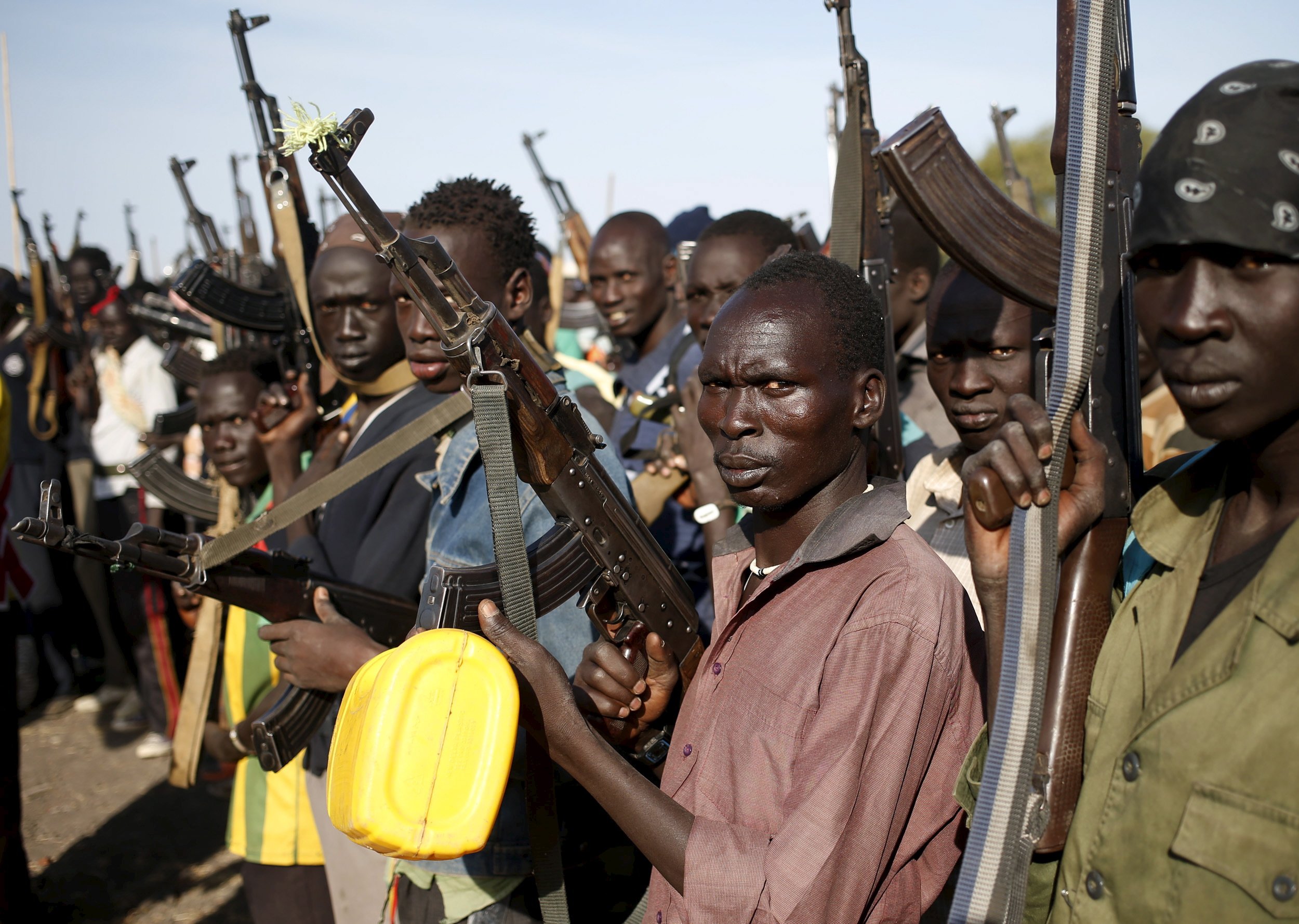
On December 15, 2013, South Sudan descended into civil war with devastating human consequences. Indiscriminate killing of civilians, gross human-rights violations, and disintegration of security and armed forces began in the capital Juba and spread to other cities around the country.
At least 50,000 people have lost their lives in the conflict, according to the International Crisis Group, and almost 650,000 refugees have fled across the borders to Kenya, Uganda, Ethiopia and Sudan. South Sudan is also home to a population of 1.7 million internally displaced persons. The recently published report by the African Union (AU) Commission of Inquiry documents inhumane atrocities committed by the armed forces of warring parties: the Government of South Sudan (GOSS) and the opposition, led by President Salva Kiir and the former vice president Riek Machar respectively. The report documents incidents of forced cannibalism, gruesome practices of rape, and burning and killing of innocent civilians, including children and the elderly. It also confirms that the Nuer ethnic group—the second largest ethnicity in South Sudan, to which Machar belongs—has been subjected to systematic killing planned by the state security.
Since its independence in July 2011, South Sudan has not been able to institute a functioning government capable of translating its sovereignty into a meaningful economic and political agenda. Instead, corruption, mismanagement of public resources, absence of law and order, and authoritarian, ethnically driven policies have become the dominant features of the state. Against this backdrop, the political violence of December 15, 2013 should be understood. The two-year civil war is a manifestation of a political crisis triggered by the collective failure of political leaders who selfishly seek to maintain their political power and economic privilege through violence. This is not a crisis of ethnicity, but ethnicity punctuated the crisis.
After a series of unsuccessful peace talks sponsored by the Intergovernmental Authority on Development, an agreement was signed by the two warring parties in August 2015. Though the Compromise Peace Agreement laid out a clear path for political reform, accountability and reconciliation, its full implementation has been challenging due to a lack of political will. The agreement called for a ceasefire, the formation of a transitional government of national unity, and the establishment of a hybrid court. At the moment, the formation of the transitional government that was due to be in place by November is behind schedule. The opposition has been forced to delay sending its advance team to Juba several times due to lack of funds and unjustifiable objections from the GOSS about the size of the team. While the peace agreement is unraveling, the government continues to violate the ceasefire particularly in Western and Eastern Equatoria states, forcing thousands to flee their homes.
The agreement and the AU Commission report offer a last chance for South Sudan to recover from civil war and avoid being placed in an international trusteeship. Both documents chart out an inclusive process for political reform, accountability, reconciliation and healing. But the implementation of the peace agreement and the AU report will not be sustainable without rethinking the meaning of independence, forging justice for an inclusive future, and the effective involvement of the international community.
Political independence entails a new set of political institutions that will advance the interests of the citizenry. It also entails the development of intellectual resources that cultivate new possibilities for peaceful ethnic coexistence safeguarded by citizenship. Conflicting ethnic identities, such as Nuer and Dinka, can be redefined in a way that makes the managing of and coexistence between ethnic groups possible. The pathway to recovery in South Sudan depends on constructing a new polity which speaks the language of inclusivity instead of divisiveness.
The atrocities committed against targeted ethnic groups has fractured the society along ethnic and regional lines. The process of reconciliation and healing will be a daunting task. South Sudan's political leaders have to acknowledge that the reform of state institutions is critical to this process, and the quest for justice has to be seen as part of the political process framed in the peace agreement and AU report. If the killers and the victims recognize that both have to live in the same country and share a common future, the march toward reconciliation and healing will be possible.
Finally, South Sudan is in dire need of the international community's support to implement the peace agreement. The AU, the UN, and the Troika countries should continue to exert pressure on the warring parties to abide by their commitments to end the civil war. The recovery of South Sudan will not be possible without a multilateral engagement geared toward implementing the agreement, in particular the formation of the transitional government and holding accountable those who have committed crimes against humanity.
Amir Idris is Professor and Chair of Department of African and African American Studies at Fordham University, New York City.
Uncommon Knowledge
Newsweek is committed to challenging conventional wisdom and finding connections in the search for common ground.
Newsweek is committed to challenging conventional wisdom and finding connections in the search for common ground.
About the writer
To read how Newsweek uses AI as a newsroom tool, Click here.








